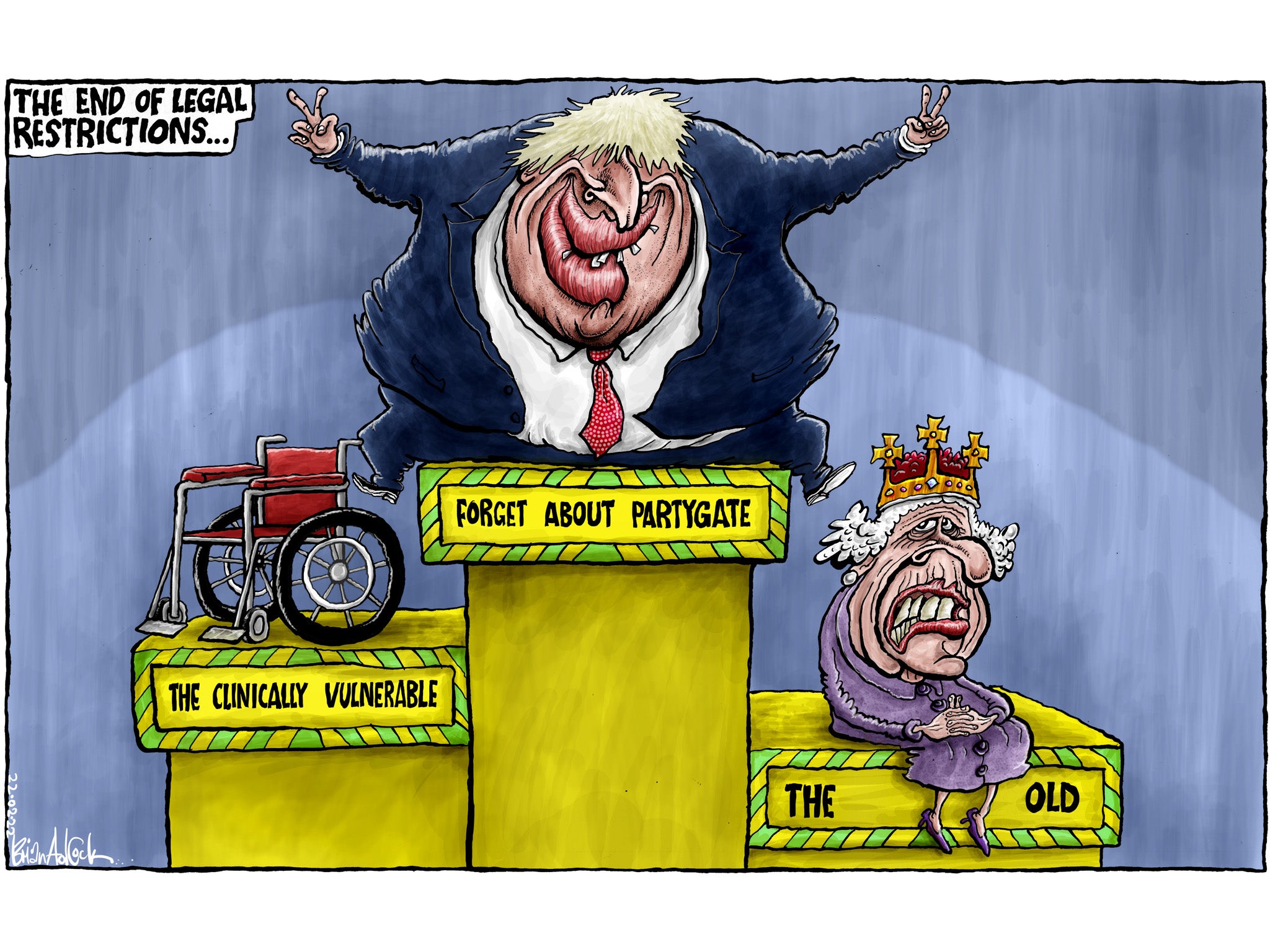Boris Johnson has been a man in a hurry as he removed the remaining Covid restrictions in England. He is right about one thing: we do need to “learn to live with this virus”. Yet the prime minister’s haste has been driven not by a desire to set people “free” but to throw “red meat” to hungry Conservative backbenchers.
Some of his critics are on the libertarian wing of the party and for them, lifting the curbs cannot come a moment too soon. His living with Covid plan is part of a ploy to persuade Tory MPs to live with Mr Johnson, whatever their verdict on the final outcome of the Partygate investigations by the Metropolitan Police and senior civil servant Sue Gray.
Mr Johnson gave the game away when he preannounced at Prime Minister’s Questions on 9 February that he intended to end restrictions a month earlier than the originally planned date of 24 March – before any real debate with his cabinet or scientific advisers.
Yet his attempt to exploit what he calls “this moment of pride” for the country, as it lifts curbs ahead of many of its European counterparts, has not gone according to plan. The unwelcome news that the Queen has Covid is a reminder that the virus is still very much with us and cannot be waved away by a magic prime ministerial wand.
Then a cabinet meeting on Monday which had been expected to rubber stamp the changes was delayed by a dispute between the chancellor Rishi Sunak and health secretary Sajid Javid over future funding for testing. As the cabinet struggled to agree on how we should “live with Covid”, it hardly inspired public confidence. In the event, Mr Javid appears to have failed to win the extra £5bn he requested and will have to find the money from his already stretched budget.
The provision of free universal tests to the public will end on 1 April after Mr Sunak baulked at the cost, which peaked at £2bn in January and will reach £15.7bn in the current financial year. This change is premature, at least while case numbers remain at their current level. An estimated 4 million people take regular Covid tests; those taking two a week could face a bill estimated at £500 a year.
The move might well prove a false economy because testing is one way of limiting the spread of the virus; the economy will hardly be helped if sick people pass on the disease to their work colleagues. Ministers might hope that employers pick up the tab for tests but many are struggling as we emerge from the pandemic and, like their employees, they will have higher national insurance contributions to pay from April. Maintaining widespread testing would also keep up the country’s guard against the new variants that are inevitable.
To keep up to speed with all the latest opinions and comment, sign up to our free weekly Voices Dispatches newsletter by clicking here
The decision to end from Thursday the legal requirement to self-isolate after testing positive is another worrying step. The absence of adequate statutory sick pay – at £96.35 a week, the UK’s level is amongst the lowest in Europe – means that many workers, already facing a cost-of-living crisis, will simply not be able to afford to stay at home.
Although Mr Johnson conceded in his Commons statement that “the pandemic is not over” and that “Covid will not suddenly disappear”, there is a real danger his triumphalist approach sends the wrong signal and, crucially, gives people a false sense of security.
The time when he could claim to be “following the science” or “the data” has long since passed; he is following his instincts on how to survive in his job and to appeal to the Tory MPs who will decide his fate.
Mr Johnson wants to move from “government restrictions to personal responsibility”. However, in prematurely sweeping away some of the vital measures that enable people to protect themselves and others, his government has failed to live up to its own responsibility to protect public health.




Join our commenting forum
Join thought-provoking conversations, follow other Independent readers and see their replies
Comments